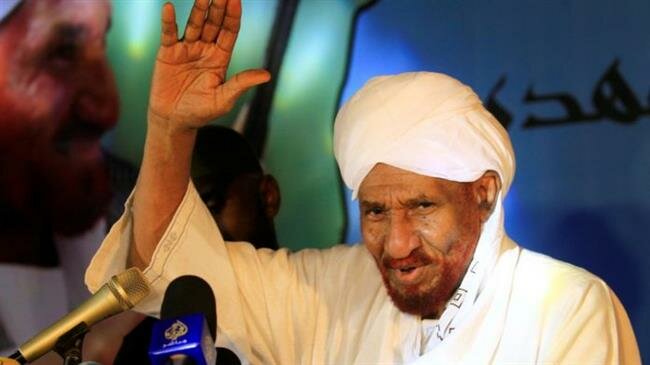Opposition leader says Sudan must join International Criminal Court ‘immediately’
Sudan must “immediately” join the International Criminal Court (ICC), which has charged Omar al-Bashir, the ousted president, with war crimes.
Head of the opposition National Umma Party Sadiq al-Mahdi said on Saturday that Sudan should “immediately” join the Hague-based court.
“This should be done in coordination with the Transitional Military Council,” the former prime minister said.
Bashir is wanted by the ICC for genocide, war crimes and crimes against humanity for his alleged role in the conflict in Darfur.
Bashir, 75, was ousted by the army on April 11 after months of protests prompted the country’s armed forces to take sides with the protesters, ending his three-decade rule.
Mahdi added that his party would possibly “agree on a civilian authority with the Military Council because they did not plan a coup.”
Representatives from the TMC and opposition forces, gathered under an umbrella group known as the Declaration of Freedom and Change Forces, held their first meeting to discuss the protesters’ demand for a handover to civilian rule.
“Today we have taken positive steps and we expect to reach an agreement satisfactory to all parties,” said Ayman Nimir, an opposition negotiator.
“We expect to receive a response from the Military Council regarding the formation of a sovereign council within hours.”
A TMC spokesman, Shams el-Din Kabbashi, also said the talks had gone well.
“God willing the talks will continue this evening and we are very optimistic that we can reach a final result and announce it to the Sudanese people,” he said.
The TMC has dismissed and arrested some former officials, announced anti-corruption measures and promised to give executive authority to a civilian government, but has previously signaled that ultimate authority will remain in its hands for a two-year transitional period.
Opposition leaders, in response, vowed to continue protests as part of a widening campaign to force the TMC to transfer power to civilians.
Protests began late last year after Khartoum decided to triple the price of bread. The protests quickly turned into a mass movement across the country against the ruling regime, and finally led to Bashir’s ouster.
Source: Presstv







